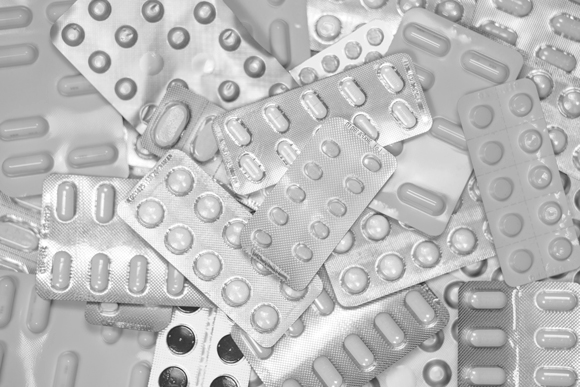3.6 Medications
As you learnt earlier, the gut microbiome is now known to affect how different medications, recreational drugs and other chemicals are processed in the body and this can contribute to IVDR.
-
Question 14
From earlier in this course, can you remember what IVDR stands for?
-
Individual variability of drug response.
Recreational drugs, medications and other chemicals can also directly affect the gut microbiome.
-
Question 15
From your general knowledge, which type of pathogenic organisms are treated by using antibiotics?
-
Antibiotics are given for the treatment of bacterial infections (they are sometimes prescribed as a preventative manner too, if an individual has particular health conditions or illness).
-
Question 16
How might antibiotics affect the gut microbiome?
-
Antibiotics might change the number and diversity of the bacterial groups within the gut microbiome.
Indeed, antibiotics and non-antibiotic drugs, such as proton-pump inhibitors (PPIs) (which are often used to treat acid reflux), statins (which can lower cholesterol in the blood), laxatives, and chemotherapies can change the composition of the gut microbiome. These are typically associated with a reduction in the biodiversity of the bacteria within the gut microbiome (Weersma, 2020). However, often individuals who are taking these medications need to do so for significant health reasons, so an important balance needs to be achieved to maintain good overall health.
It can therefore be helpful for individuals who regularly take antibiotics or certain groups of non-antibiotic medications to use pre- or probiotics (as you’ll explore later in this course).

